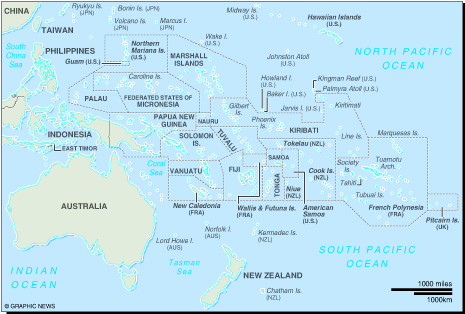Sunday Times 2
CHOGM: Our guests!
Manmohan Singh, Prime Minister of India
Manmohan Singh — born on September 26, 1932 — is the 13th and current Prime Minister of India. Educated at Oxford and  Cambridge, he is a renowned economist and the only Prime Minister since Jawaharlal Nehru to return to power after completing a full five-year term, and the first Sikh to hold the office.
Cambridge, he is a renowned economist and the only Prime Minister since Jawaharlal Nehru to return to power after completing a full five-year term, and the first Sikh to hold the office.
Singh became prime minister in May 2004 after the Congress Party’s unexpected success in general elections.
The party’s president, Sonia Gandhi, the widow of former prime minister Rajiv Gandhi, shocked her supporters by declining the top post, apparently to protect the party from damaging attacks over her Italian origin.
Singh said his priorities were to reduce poverty and to plough on with economic reforms. During his first year in office he held 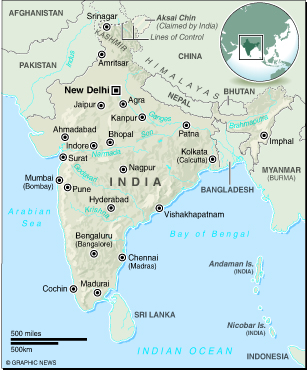 together a coalition which included communist allies and ministers accused of corruption. He continued to pursue market-friendly economic policies and oversaw the introduction of nuclear non-proliferation legislation.
together a coalition which included communist allies and ministers accused of corruption. He continued to pursue market-friendly economic policies and oversaw the introduction of nuclear non-proliferation legislation.
But his promised “New Deal” for rural India – an attempt to raise the poorest citizens out of poverty – has still to bear fruit, and by 2011 he was facing demands for inquiries into a series of financial scandals.
Though Singh has repeatedly promised a crackdown on corruption, his critics say that the accumulation of graft scandals points to a pervasive culture of corruption in his administration.
His government also came under intense pressure after the Mumbai attacks of November 2008, which left nearly 200 people dead and prompted a storm of criticism of security arrangements.
However, Singh’s Congress-led coalition then went on to score an emphatic victory at general elections in April and May 2009, coming within 11 seats of winning an absolute majority in parliament.
The emphatic defeat of the opposition Bharatiya Janata Party (BJP) confounded predictions of a close contest.
Singh made his reputation as a finance minister in the early 1990s, under the Narasimha Rao government, when he was the driving force behind economic liberalisation.
A Sikh born in West Punjab, Mr Singh is a former International Monetary Fund official and governor of India’s Central Bank.
Singh married Gursharan Kaur in 1958. They have three daughters, Upinder Singh, Daman Singh and Amrit Singh.
Country facts
-Full name: Republic of India
-Population: 1.3 billion (UN, 2012)
-Capital: New Delhi
-Most-populated city: Mumbai (Bombay)
-Area: 3.1 million sq km (1.2 million sq miles), excluding Indian-administered Kashmir (100,569 sq km/38,830 sq miles)
-Major languages: Hindi, English and more than 20 other official languages
-Major religions: Hinduism, Islam, Christianity, Sikhism, Buddhism
-Life expectancy: 64 years (men), 68 years (women) (UN)
-Main exports: Agricultural products, textile goods, gems and jewellery, software services and technology, engineering goods, chemicals, leather products
-GNI per capita: US $1,420 (World Bank, 2011)
Nawaz Sharif, Prime Minister of Pakistan
The Muslim League conservative opposition party won parliamentary elections in May 2013, returning Nawaz Sharif – born 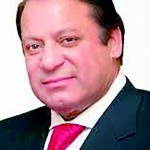 on December 25, 1949 — to power for a third time.
on December 25, 1949 — to power for a third time.
Sharif, a wealthy industrialist from Punjab, first emerged in the 1980s as a protege of military ruler Zia ul-Haq, and went on to serve as elected prime minister in 1990-1993 and 1997-1999, alternating in office with the left-leaning Pakistan People’s Party (PPP).
Army chief Pervez Musharraf deposed him in a coup in 1999, and Sharif spent the following eight years in Saudi exile.
His victory in 2013 – again over the PPP – marked the first transition from one elected government 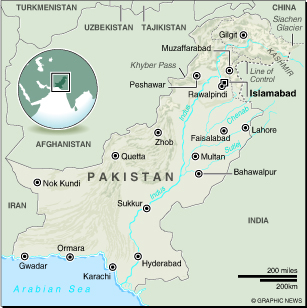 to another in the country’s history.
to another in the country’s history.
He has set out an ambitious programme of public works, fighting corruption and ending US drone attacks on the Taliban and al-Qaeda.
His family owns Ittefaq Group, a multimillion dollar steel conglomerate and Sharif Group, a conglomerate company with holdings in agriculture, transport and sugar mills. He is married to Kalsoom Nawaz Sharif. His brother Shahbaz Sharif is the incumbent Chief Minister of Punjab province.
It was during his tenure as prime minister that Pakistan tested its first nuclear device in May 1998 in response to India’s test.
Sharif has protested the constant violation of Pakistan’s sovereignty by the United States’ drone attacks on targets inside Pakistan. The latest drone attack killed the Pakistan Taliban leader Hakimullah Mehsud. The Sharif government summoned the US ambassador to the foreign ministry to lodge a strong protest.
This week Sharif told the cabinet that his government would pursue talks with the Taliban despite the killing of Mehsud.
Country facts
-Full name: Islamic Republic of Pakistan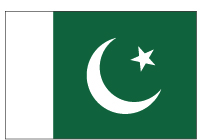
-Population: 179 million (UN, 2012)
-Capital: Islamabad
-Largest city: Karachi
-Area: 796,095 sq km (307,374 sq miles), excluding Pakistani-administered Kashmir (83,716 sq km/32,323 sq miles)
-Major languages: English, Urdu, Punjabi, Sindhi, Pashto, Balochi
-Major religion: Islam
-Life expectancy: 65 years (men), 67 years (women) (UN)
-Main exports: Textile products, rice, cotton, leather goods
-GNI per capita: US $1,120 (World Bank, 2011)
Nicos Anastasiades, President of Cyprus
Conservative Democratic Rally candidate Nicos Anastasiades – September 27, 1946 — won the February 2013 run-off 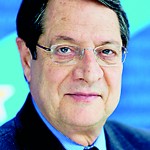 election by one of the biggest margins for many years, promising to do whatever was needed to secure a financial rescue package.
election by one of the biggest margins for many years, promising to do whatever was needed to secure a financial rescue package.
He quickly reached agreement with the European Union and IMF on a 10bn-euro bank bailout as his country was on a threshold of a financial crisis.
Anastasiades says one of his first tasks would be to seek NATO’s affiliated Partnership for Peace status for Cyprus which has been divided since 1974 when Turkey invaded the north in response to a military coup on the island which was backed by Greece.
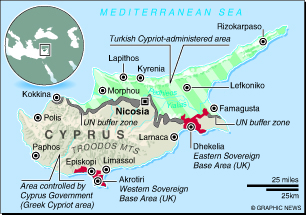 Anastasiades, aged 66 when he was elected, is a lawyer known for his no-nonsense style and impressive access to important European policymakers like German Chancellor and fellow-conservative Angela Merkel.
Anastasiades, aged 66 when he was elected, is a lawyer known for his no-nonsense style and impressive access to important European policymakers like German Chancellor and fellow-conservative Angela Merkel.
Cyprus had been shut out of international capital markets for almost two years, with the outgoing administration resorting to heavy borrowing from state-owned corporations to pay public sector salaries.
He graduated in law from the National and Kapodistrian University of Athens and completed postgraduate studies in shipping law at University College London.
Country facts
-Full name: Republic of Cyprus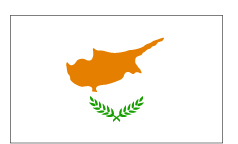
-Population: 1.1 million (combined) (UN, 2012)
-Capital: Nicosia (Lefkosia to Greek Cypriots, Lefkosa to Turkish Cypriots
-Area (combined): 9,251 sq km (3,572 sq miles)
-Major languages: Greek, Turkish
-Major religions: Christianity, Islam
-Life expectancy: 78 years (men), 82 years (women) (UN)
-Main exports: Clothing, potatoes, cigarettes, pharmaceuticals
-GNI per capita: US $29,450 (World Bank, 2010)
David Cameron, Prime Minister of the United Kingdom
David Cameron – born on October 9, 1966 — became prime minister at the head of a coalition government on May 11, 2010, 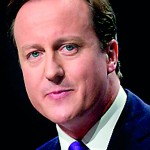 returning his centre-right Conservative Party to power after 13 years of rule by the centre-left Labour Party.
returning his centre-right Conservative Party to power after 13 years of rule by the centre-left Labour Party.
Cameron formed a partnership with the third party, the traditionally social liberal Liberal Democrats, after an inconclusive parliamentary election from which the Conservatives emerged with the largest number of seats, but without an absolute majority.
It is the first formal coalition government in 70 years to govern the UK, where the electoral system usually guarantees a majority for the largest party. The partnership has proved fractious, with Cameron at times seen as struggling to maintain discipline. Several constitutional reform projects — including plans for an 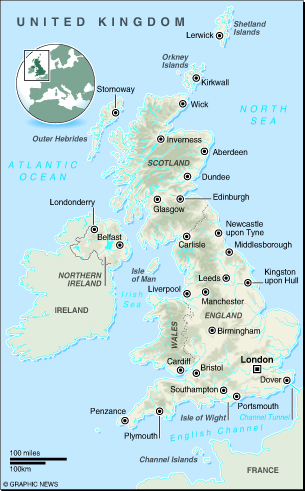 elected upper house of parliament and changes to voting for the lower house — have fallen by the wayside as a result of deep differences between the two parties.
elected upper house of parliament and changes to voting for the lower house — have fallen by the wayside as a result of deep differences between the two parties.
The new PM was confronted by a daunting economic situation, with the UK only slowly emerging from a deep recession caused by the 2008 global financial collapse, and facing a rapidly mounting budget deficit.
Assuming office, Cameron promised that cutting the deficit would be his top priority. In October 2010, Cameron’s government announced a programme of deep cuts in government spending – the UK’s largest in generations.
Country facts
-Full name: United Kingdom of Great Britain and Northern Ireland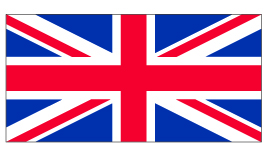
-Population: 62.8 million (UN, 2012)
-Capital: London
-Area: 242,514 sq km (93,638 sq miles)
-Major language: English
-Major religion: Christianity
-Life expectancy: 78 years (men), 82 years (women) (UN)
-Monetary unit: 1 pound sterling = 100 pence
-Main exports: Manufactured goods, chemicals, foodstuffs
-GNI per capita: US $37,780 (World Bank, 2011)
Najib Abdul Razak: Prime minister of Malaysia
Najib Razak – born on July 23, 1953 — assumed the post of prime minister following the resignation of his predecessor in 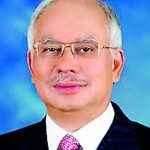 2009, and was sworn in for a second term after his coalition won elections in May 2013.
2009, and was sworn in for a second term after his coalition won elections in May 2013.
The long-governing National Front coalition won the 2013 national elections with a weakened majority to extend its unbroken, 56-year rule, fending off the strongest opposition it had ever faced.
The opposition alleged the biggest electoral fraud in the country’s history.
The son of the country’s second prime minister (Tun Abdul Razak) and nephew of the third (Tun Hussein Onn), Mr Najib is regarded by many Malaysians as political blue blood and seems to have been destined for the premiership from an early age.
A British-trained economist, he first entered parliament at the age of 23 – becoming the youngest MP in Malaysian history – 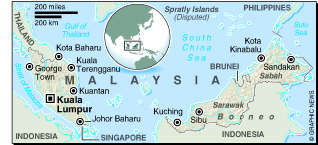 and quickly rose to prominence.
and quickly rose to prominence.
He held numerous cabinet posts – including finance and defence – before becoming prime minister.
He took over the premiership at a turbulent time, and faces the enormous challenge of steering the country through the global financial crisis, which has hit the economy hard.
Najib pledged radical reforms and a more transparent government. He said that one of his priorities would be to close a widening ethnic and religious divide, after Malaysia’s ethnic minorities shifted towards the opposition in large numbers in the 2008 polls, fearing their rights were being eroded.
But his rise to power was marked by a government crackdown on the resurgent opposition, with allegations that strong-arm tactics were being used to stifle political dissent.
In July 2011, a demonstration in the capital Kuala Lumpur calling for electoral reform was forcibly broken up by the police.
However, the following month Najib announced that a cross-party parliamentary committee would look into ways of making the voting process more democratic.
Country facts
-Full name: Federation of Malaysia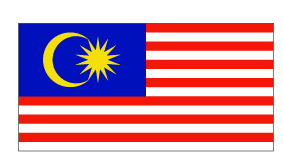
-Population: 29.3 million (UN, 2012)
-Capital: Kuala Lumpur
-Area: 329,847 sq km (127,355 sq miles)
-Major languages: Malay (official), English, Chinese dialects, Tamil, Telugu, Malayalam
-Major religions: Islam, Buddhism, Taoism, Hinduism, Christianity, Sikhism
-Life expectancy: 73 years (men), 77 years (women)
-Main exports: Electronic equipment, petroleum and liquefied natural gas, chemicals, palm oil, wood and wood products, rubber, textiles
-GNI per capita: US $8,770 (World Bank, 2011
The Maldives
Country facts
-Full name: Republic of Maldives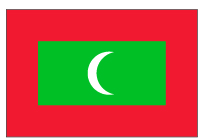
-Population: 324,000 (UN, 2012)
-Capital: Male
-Area: 298 sq km (115 sq miles)
-Major language: Divehi
-Major religion: Islam
-Life expectancy: 76 years (men), 79 years (women) (UN)
-Main exports: Fish
-GNI per capita: US $5,720 (World Bank, 2011)

Lee Hsien Loong, Prime Minister of Singapore
The elder son of Singapore’s founding father Lee Kuan Yew, Lee Hsien Loong – born on February 10, 1952 — took office in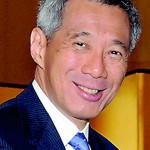 August 2004, without an election, as part of a planned handover of power.
August 2004, without an election, as part of a planned handover of power.
He vowed to continue the policy of opening up Singapore’s society.
Lee won re-election with typically large PAP majorities in 2006 and 2011. However, the opposition made some significant gains in 2011, spurred by voter concern about income inequality and immigration.
The prime minister said the election marked a “shift in the political landscape”, and said his party would undergo “soul-searching”.
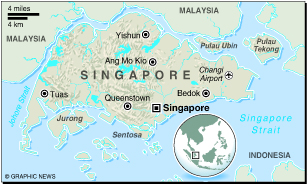 A former army officer, Lee followed his father into politics at the age of 32, becoming deputy prime minister in 1990.
A former army officer, Lee followed his father into politics at the age of 32, becoming deputy prime minister in 1990.
As finance minister in his predecessor’s cabinet, he was credited with helping to secure Singapore’s competitive edge amid growing competition from China.
Lee’s father, who oversaw the transformation of Singapore into an economic power, served as the cabinet’s official mentor between 2004 and 2011, when he said it was time to make way for a younger generation.
According to Lee Kuan Yew’s biography, the younger Lee had learnt the Jawi script from the age of five.
In 1971, he was awarded a President’s Scholarship and Singapore Armed Forces Overseas Scholarship by the Public Service Commission to study Mathematics at Trinity College, University of Cambridge. He was Senior Wrangler in 1973, and graduated in 1974 with first class honours in mathematics and a Diploma in Computer Science (with distinction). In 1980, he completed a Master of Public Administration at the John F. Kennedy School of Government, Harvard University.
Country facts
-Full name: Republic of Singapore
-Population: 5.3 million (UN, 2012)
-Capital: Singapore
-Area: 660 sq km (255 sq miles)
-Major languages: English, Malay, Mandarin, Tamil
-Religions: Taoism, Buddhism, Islam, Christianity, Hinduism
-Life expectancy: 79 years (men), 84 years (women) (UN)
-Main exports: Computer equipment, machinery, rubber products, petroleum products
-GNI per capita: US $42,930 (World Bank, 2011)
Sheikh Hasina, Prime Minister of Bangladesh
Sheikh Hasina – born on September 28, 1947 — became Bangladesh’s prime minister for the second time in January 2009. She is the eldest of five children of Sheikh Mujibur Rahman, the founding father and first President of Bangladesh, and widow of 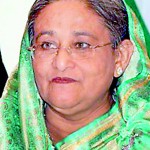 M. A. Wazed Miah, a nuclear scientist. Hasina was not in Bangladesh when her father was assassinated on 15 August 1975. She was not allowed to return to the country until after she was elected to lead the Awami League party in February and arrived 17 May 1981
M. A. Wazed Miah, a nuclear scientist. Hasina was not in Bangladesh when her father was assassinated on 15 August 1975. She was not allowed to return to the country until after she was elected to lead the Awami League party in February and arrived 17 May 1981
In general elections in December 2008, her centre-left Awami League won a crushing victory over the centre-right Bangladesh Nationalist Party (BNP) led by her long-time political foe, Begum Khaleda Zia.
Sheikh Hasina and Khaleda Zia — both former prime ministers — had been jailed for suspected corruption but were released to contest the vote.
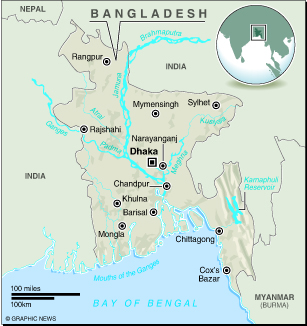 The election marked a return to the usual two-party politics after the state of emergency imposed in January 2007, despite the army-backed caretaker government’s attempts to break the mould and encourage a third political force.
The election marked a return to the usual two-party politics after the state of emergency imposed in January 2007, despite the army-backed caretaker government’s attempts to break the mould and encourage a third political force.
Hasina was previously prime minister from 1996 to 2001, while Khaleda was in power between 1991 and 1996 and again from 2001 to October 2006, when she handed over power to a caretaker administration ahead of elections.
The hostility between the women stems in part from differences over who played a greater role in the country’s independence struggle – Hasina’s father, Sheikh Mujibur Rahman, or Khaleda’s husband, General Ziaur Rahman.
Hasina accuses Khaleda’s BNP and its Islamic allies with links to outlawed Islamist groups blamed for a series of bomb attacks in 2007. Khaleda says Hasina’s statements amounted to treason.
Hasina escaped an assassination attempt in August 2004 when grenades exploded at a rally she was addressing as opposition leader. Twenty-three people were killed in the attack.
Hasina is a member of the Council of Women World Leaders, an International network of current and former women presidents and prime ministers.
Country facts
-Full name: People’s Republic of Bangladesh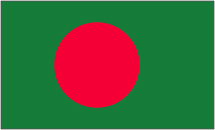
-Population: 152.4 million (UN, 2012) Capital and largest
-city: Dhaka
-Area: 143,998 sq km (55,598 sq miles)
-Major language: Bengali
-Major religions: Islam, Hinduism
-Life expectancy: 69 years (men), 70 years (women) (UN)
-Monetary unit: 1 taka = 100 paisa
-Main exports: Garments, fish, jute goods, leather products
-GNI per capita: US $780 (World Bank, 2011)
Hassanal Bolkiah, Sultan of Brunei
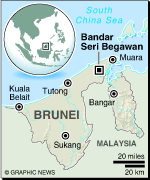 Hassanal Bolkiah, born on July 15 1946, is one of the world’s longest-reigning monarchs. He became sultan in October 1967
Hassanal Bolkiah, born on July 15 1946, is one of the world’s longest-reigning monarchs. He became sultan in October 1967 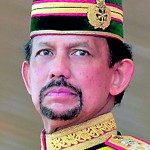 after his father, Sir Haji Omar Ali Saifuddin, abdicated. He was crowned in August 1968.
after his father, Sir Haji Omar Ali Saifuddin, abdicated. He was crowned in August 1968.
He is also the first and incumbent Prime Minister of Brunei. The Sultan received high school education at Victoria Institution in Kuala Lumpur, after which he attended the Royal Military Academy Sandhurst in the United Kingdom. Like his father, he has been knighted by Queen Elizabeth II of the United Kingdom, of which Brunei was a protectorate until 1984.
In 1991 he introduced a conservative ideology called Malay Muslim Monarchy, which presented the monarchy as the defender of the faith.
Apparently aimed at pre-empting calls for democratisation, it is said to have alienated Brunei’s large Chinese and expatriate communities.
Country facts
-Full name: Brunei Darussalam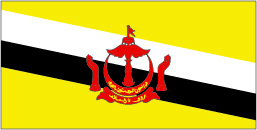
-Population: 413,000 (UN, 2012)
-Capital: Bandar Seri Begawan
-Area: 5,765 sq km (2,226 sq miles)
-Major languages: Malay, English, Chinese
-Major religions: Islam, Buddhism, Christianity
-Life expectancy: 76 years (men), 81 years (women) (UN)
-Main exports: Crude oil, liquefied natural gas, petroleum products
-GNI per capita: High income: $31,800 (World Bank, 2009)
Anote Tong, President of Kiribati
Anote Tong — born June on 11, 1952 — won the election in July 2003 with a slim plurality of votes cast (47.4%) against his brother, Dr. Harry Tong (43.5%). The elections were contested by the opposition, due to allegations of electoral fraud but the 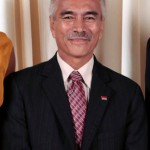 High Court of Tarawa had confirmed that there was no fraud. He was easily re-elected on 17 October 2007, for a second term (64%). In 2012, Tong was reelected for a third term, although with a significantly smaller percentage than in the previous two elections.
High Court of Tarawa had confirmed that there was no fraud. He was easily re-elected on 17 October 2007, for a second term (64%). In 2012, Tong was reelected for a third term, although with a significantly smaller percentage than in the previous two elections.
During the 2007 campaign, the presence of a Chinese satellite tracking base in Kiribati was a key issue in the campaign.Beijing subsequently dismantled the station after Kiribati established diplomatic ties with Taiwan.
The president has also highlighted the “very real” threat to the country from climate change and rising sea levels. In 2005 he identified rapidly-rising population levels and youth unemployment as challenges for Kiribati.
The president is also head of the government.
Born in Tabuaeran, he is the son of a Chinese migrant who settled in the Gilberts after World War II and of Nei Keke, from the island of Maiana in Kiribati, he went to St Bede’s College for his secondary school education, graduated from Canterbury University with a degree in Science, and then gained a Masters in Economics degree from the London School of Economics.
Country facts
-Full name: The Republic of Kiribati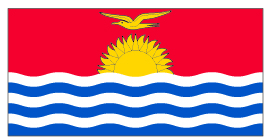
-Population: 100,800 (UN, 2010)
-Capital: Tarawa Atoll
-Area: 810 sq km (313 sq miles)
-Major language: English, Gilbertese
-Major religion: Christianity
-Life expectancy: 59 years (men), 63 years (women) (UN)
-Main exports: Copra, fish, seaweed
-GNI per capita: US $2,010 (World Bank, 2010)
Lord Tu’ivakano, Prime minister of Tonga
Lord Tu’ivakano – born January 15, 1952 — became the country’s first prime minister to be elected by parliament rather than appointed by the king in December 2010.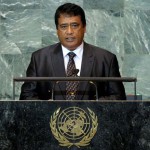
Tu’ivakano, a former speaker of Parliament, won 14 votes – two more than pro-democracy leader Akalisi Pohiva – in the ballot among the 26 members of the Tongan House of Representatives.
Tu’ivakano, the minister for education and training in the former government, replaced Feleti Seveli.
Under Tonga’s new constitution, voters directly elected 17 seats in parliament, while nine were reserved for nobles.
Previously, the tiny Pacific kingdom was run by a parliament dominated by a clique of nobles selected by the king, who also chose the prime minister and cabinet.
The swing towards democracy followed riots in the capital Nuku’alofa in 2006, which claimed eight lives and destroyed much of the business centre as people protested against the slow pace of political reform.
In 1991 he received a Bachelor Degree with Honours in Political Science after three years of study at the Flinders University of South Australia.
Country facts
-Full name: Kingdom of Tonga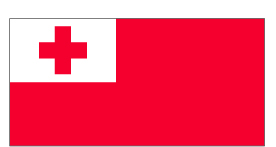
-Population: 105,000 (UN, 2012)
-Capital: Nuku’alofa
-Area: 748 sq km (289 sq miles)
-Major la
-Guages: Tongan, English
-Major religion: Christianity
-Life expectancy: 70 years (men), 75 years (women) (UN)
-Main exports: Fish, pumpkins, coconut products, vanilla beans
-GNI per capita: US $3,820 (World Bank, 2011
Baron Waqa, President of Nauru
Baron Waqa was sworn in as president of Nauru, the world’s smallest republic, in June 2013 after parliament chose him as its leader.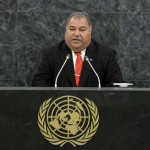
He is a former education minister who has served as a member of parliament since 2003.
On April 23, 2004, Waqa and his colleagues participated in protests at the Nauru International Airport in Yaren; these were meant to show displeasure regarding government policy against Afghan asylum-seekers in Australia and the Flotilla of Hope, as well as against the deadlock then encountered in Parliament.
All four faced up to fourteen years in jail because of their participation in the protest; charges were later dropped.
Country facts
-Full name: Republic of Nauru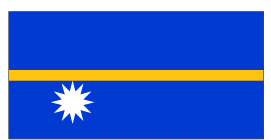
-Population: 10,200 (UN, 2011)
-Capital: None, administrative centre is Yaren
-Area: 21 sq km (8 sq miles)
-Major languages: Nauruan, English
-Major religion: Christianity
-Life expectancy: 55 years (men), 57 years (women) (UN)
-Main export: Phosphates
-GNI per 4capita: n/a
Enele Sopoaga, Prime minister of Tuvalu
The governor-general appointed opposition leader Enele Sopoaga as prime minister in August 2013 to succeed Willy Telavi, whom the governor-general had dismissed over his failure to convene parliament for eight months.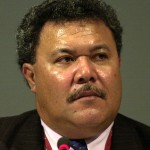
Born on February 10, 1956, Mr Sopoaga is the younger brother of former prime minister Saufatu Sopoaga and served as a civil servant and diplomat before entering politics in 2010. He served as deputy prime minister briefly that year before becoming leader of the opposition.
He has been one of the most prominent spokesmen for his country on climate change in his various capacities as ambassador to the UN, foreign minister and head of the Tuvaluan delegation to the Cancun international climate change conference in 2010.
Tuvalu has no political parties. Allegiances revolve around personalities and geography. The 15-member parliament is popularly elected every four years. The prime minister is chosen by MPs.
Country facts
-Full name: Tuvalu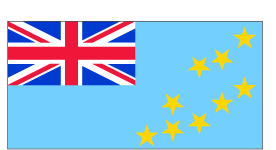
-Population: 11,200 (UN, 2012)
-Capital: Funafuti
-Area: 26 sq km (10 sq miles)
-Major language: Tuvaluan, English
-Major religion: Christianity
-Life expectancy: 62 years (men), 65 years (women) (UN)
-Main exports: Copra, handicrafts
-GNI per capita: $4,950 (World Bank, 2011)
Tony Abbott, Prime Minister of Australia
Tony Abbott’s conservative Liberal-National coalition swept into office in elections in September 2013, ending six years of centre-left Labor Party rule.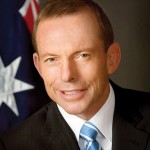
Oxford-educated Abbott — born in London, England, on November 4, 1957 — ran a disciplined campaign against a government in disarray after years of power struggles between Kevin Rudd and Julia Gillard, who ousted one another in turn as prime minister.
He was able to overcome his relatively low personal approval rating with policies aimed at reversing Labor’s carbon emissions tax, curbing spending on foreign aid and cutting the numbers of asylum seekers.
One key policy of the British-born Roman Catholic, who considered training for the priesthood, is a generous parental leave scheme, but this sits awkwardly with his pledge to cut public spending.
Abbott was also a student boxer, earning two Blues for boxing while at Oxford. During his student days he once “saved a child who was swept out to sea. Another time, he helped save children from a burning house next to a pub where he was drinking. On each occasion he disappeared before he could be properly thanked”.
When Abbott was 19, his girlfriend became pregnant and claimed Abbott was the biological father. The couple did not marry and put the child up for adoption. For 27 years, Abbott believed that he fathered this child.
In 2004, the boy sought out his biological mother and it was publicly revealed that the child had become an ABC sound recordist who worked in Parliament House, Canberra, and was involved in making television programmes in which Abbott appeared. The story was reported around the world, but DNA testing later revealed that Abbott was not the man’s father.
Country facts
-Full name: Commonwealth of Australia
-Population: 22.9 million (UN, 2012)
-Capital: Canberra
-Largest city: Sydney
-Area: 7.7 million sq km (2.9 million sq miles)
-Major language: English
-Major religion: Christianity
-Life expectancy: 80 years (men), 84 years (women) (UN)
-Main exports: Ores and metals; wool, food and live animals; fuels, transport machinery and equipment
-GNI per capita: US $49,790 (World Bank, 2011)
Moana Carcasses Kalosil, Prime Minister of Vanuatu
Moana Carcasses Kalosil has been Prime Minister of Vanuatu since March 23 2013. He is the first naturalised citizen of 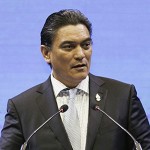 Vanuatu to become the country’s prime minister. Moana Carcasses was born on 27 January 1963 in Taravao, Tahiti, French Polynesia. His mother was ethnically Tahitian. His French father was originally from the region surrounding Carcassonne in Southern France.
Vanuatu to become the country’s prime minister. Moana Carcasses was born on 27 January 1963 in Taravao, Tahiti, French Polynesia. His mother was ethnically Tahitian. His French father was originally from the region surrounding Carcassonne in Southern France.
He served as foreign minister under Prime Minister Edward Natapei from 2003 to 2004. Following parliamentary elections, he became finance minister on July 28 2004 under Prime Minister Serge Vohor. He kept the post of finance minister when Ham Lini became prime minister later in 2004. He remained in that position until November 14, 2005 when he was sacked by Lini for unclear reasons.
Country facts
-Full name: Republic of Vanuatu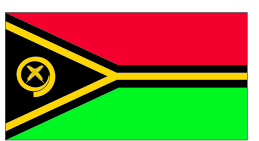
-Population: 246,000 (UN, 2011)
-Capital: Port-Vila
-Area: 12,190 sq km (4,707 sq miles)
-Major languages: Bislama, French, English
-Major religion: Christianity
-Life expectancy: 70 years (men), 74 years (women) (UN)
-Main exports: Copra, timber, beef, cocoa
-GNI per capita: US $2,870 (World Bank, 2011)
Gordon Darcy Lilo, Prime minister of the Solomon Islands
Parliament elected Gordon Darcy Lilo prime minister on November 16, 2011, only days after his predecessor, Danny Philip, sacked him from the post of finance minister.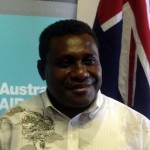
Philip subsequently resigned when several MPs deserted his government in response to Lilo’s dismissal, leaving it without a majority in the 50-seat parliament. Lilo won the backing of 29 MPs.
Several hundred protesters gathered to protest against Mr Lilo’s election, hurling rocks at police and vehicles before being dispersed by riot police.
Born on August 28, 1965, Mr Lilo was first elected to parliament in 2001 and was a government minister from 2007.
Politics in the Solomon Islands is fluid, with no deep-rooted party-political system.
He earned a master’s degree in development and administration from the Crawford School of Economics and Government at Australian National University
Lilo’s CV also includes a Postgraduate Diploma and Bachelor of Economics received from the University of Papua New Guinea.
Country facts
-Full name: Solomon Islands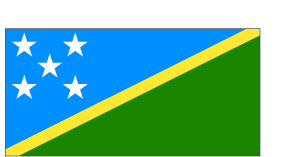
-Population: 566,000 (UN, 2012)
-Capital: Honiara
-Area: 27,556 sq km (10,639 sq miles)
-Major language: English (official), Melanesian dialects
-Major religion: Christianity
-Life expectancy: 67 years (men), 70 years (women) (UN)
-Main exports: Timber, fish, palm oil and kernels, copra
-GNI per capita: US $1,110 (World Bank, 2011)
Peter O’Neill, Prime Minister of Papua New Guinea
Parliament endorsed Peter O’Neill as prime minister in August 2012, finally drawing the line under a prolonged power struggle with his rival Sir Michael Somare, the founding father of independent Papua New Guinea.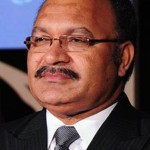
Prior to national elections in June 2012, both men had declared themselves to be the rightful prime minister.
O’Neill — February 13, 1965 — was first chosen by parliament to be acting Prime Minister in August 2011 after Sir Michael, who had by then been absent from the house for several months due to illness, was declared to be no longer eligible.
Sir Michael subsequently challenged this decision and the rivalry between the two men developed into a standoff between lawmakers, the overwhelming majority of whom continued to back O’Neill, and the Supreme Court, which ruled that O’Neill’s election was illegal and that Sir Michael should be reinstated.
After Transparency International ranked Papua New Guinea one of the most corrupt countries in the world in 2012, O’Neill declared that his government’s priority would be to crack down on corruption.
One of his first acts after being sworn in as prime minister in August 2012 was to approve the formation of a new anti-corruption task force as part of efforts to win the confidence of potential foreign investors.
O’Neill was a businessman before being elected to parliament in 2002. Two years later, he became leader of the opposition before crossing the floor in 2007 to join Sir Michael Somare’s government as finance, treasury and works minister. He obtained a Bachelor of Accountancy and Commerce degree in 1986 from the University of Papua New Guinea.
Country facts
-Full name: The Independent State of Papua New Guinea
-Population: 7.2 million (UN, 2012)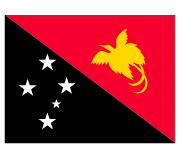
-Capital: Port Moresby
-Area: 462,840 sq km (178,704 sq miles)
-Major language: English, Tok Pisin, Hiri Motu
-Major religions: Christianity, indigenous beliefs
-Life expectancy: 61 years (men), 66 years (women) (UN)
-Main exports: Gold, petroleum, copper, coffee, palm oil, logs
-GNI per capita: US $1,480 (World Bank, 2011)
John Key, Prime minister of New Zealand
John Key – born August 9, 1961 — led the centre-right National Party to victory in the November 2008 general election and again in the November 2011 elections.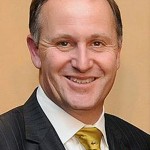
His party’s 2008 victory ended nine years of Labour-led government.
The National Party fell short of a parliamentary majority in both the 2008 and 2011 elections and was compelled to form a coalition with other parties.
Brought up in relative poverty by his Austrian-Jewish immigrant mother after the early death of his father, Key became a currency trader and has acquired a substantial personal fortune.
He rose to be head of foreign exchange at Merrill Lynch in Singapore, and served as a member of the Foreign Exchange Committee of the New York Federal Reserve Bank in 1999-2001.
National Party president John Slater encouraged him to enter politics in 2001, and Key was elected to parliament the following year. He was appointed opposition finance spokesman in 2004, and became party leader in 2006 after Don Brash resigned over allegations of election-funding irregularities.
Since taking over the party, Key has positioned it more on the centre ground. His first speech as leader pledged a future government to measures to prevent the creation of an “underclass”, and he has said that reducing greenhouse gas emissions by 50% in the next 50 years will be a priority.
New Zealand has a single-chamber parliament, the House of Representatives, which is elected for a three-year term. Coalition governments have been the norm since proportional representation replaced the “first past the post” electoral system in 1993.
He earned a Bachelor of Commerce degree in accounting from the University of Canterbury in 1981.[3][5] He has attended management studies courses at Harvard University.
Country facts
-Full name: New Zealand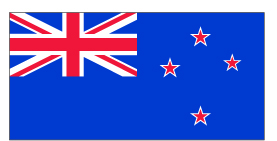
-Population: 4.5 million (UN, 2012)
-Capital: Wellington
-Largest city: Auckland
-Area: 270,534 sq km (104,454 sq miles)
-Major languages: English, Maori
-Major religion: Christianity
-Life expectancy: 79 years (men), 83 years (women) (UN)
-Main exports: Wool, food and dairy products, wood and paper products
-GNI per capita: US $29,140 (World Bank, 2010)
Stephen Harper, Prime Minister of Canada
The Conservative Party of Prime Minister Stephen Harper – born on April 30, 1959 — won a third consecutive term in office in snap elections held in May 2011. He is boycotting this month’s Commonwealth summit in Sri Lanka, citing Sri Lanka’s 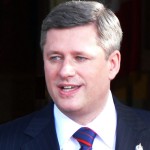 alleged human rights violations.
alleged human rights violations.
Harper’s government had been toppled by the opposition in March 2011. A motion, brought by the main opposition Liberal Party and backed by two other opposition parties, declared the government was in contempt of parliament and had lost its confidence in a row centered on 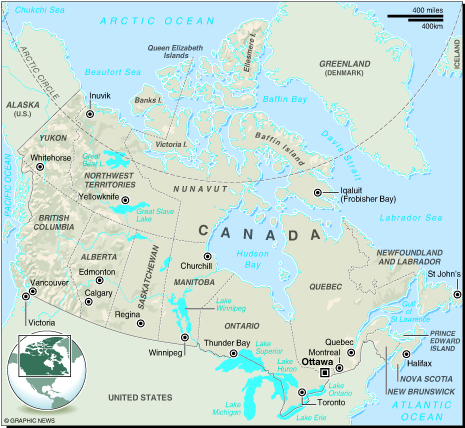 Harper’s budget plans.
Harper’s budget plans.
The opposition said Harper’s government was in contempt of parliament for failing to provide the estimated costs for a number of spending programmes.
It was the first time that a Canadian government had been found in contempt of parliament. Harper became prime minister in 2006, after elections that brought to an end 12 years of Liberal government.
However, the Conservatives failed to win an overall majority and had to work with opposition parties in order to govern.
A staunch supporter or Israel and its occupation of Palestinian territories, Harper studied economics at the University of Calgary in Alberta. He is married and has two children. Aside from politics and intellectual pursuits, he is passionate about ice hockey.
Country facts
-Full name: Canada
-Population: 34.7 million (UN, 2012)
-Capital: Ottawa
-Largest city: Toronto
-Area: 9.9 million sq km (3.8 million sq miles)
-Major languages: English, French (both official)
-Major religion: Christianity
-Life expectancy: 79 years (men), 83 years (women) (UN)
-Main exports: Machinery and equipment, automotive products, metals and plastics, forestry products, agricultural and -Fishing products, energy products
-GNI per capita: US $45,550 (World Bank, 2011)
Tuila’epa Sailele Malielegaoi, Prime Minister of Samoa
Prime Minister Tuila’epa’s ruling Human Rights Protection Party (HRPP) gained a landslide victory in parliamentary polls in 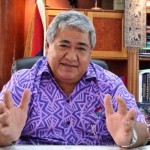 March 2011, heralding a fourth term for the premier.
March 2011, heralding a fourth term for the premier.
Tuila’epa won his seat unopposed, despite criticism over the government’s handling of a deadly tsunami that struck the country in 2009.
Born on April 14, 1945 and an economist by training, Tuila’epa was educated in Samoa and New Zealand, where he gained a master’s degree – the first Samoan to do so.
In 1978 he moved to Brussels to work for the European Economic Community. He entered the Fono (parliament) two years later, while simultaneously working as a partner in the accounting firm Coopers and Lybrand.
All but two of the seats in the Fono are reserved for ethnic Samoans and only the heads of extended families, known as “matai”, may stand for election to them. The Fono selects the prime minister.
Country facts
-Full name: The Independent State of Samoa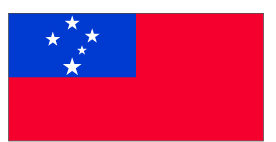
-Population: 185,000 (UN, 2012)
-Capital: Apia
-Area: 2,831 sq km (1,093 sq miles)
-Major languages: Samoan, English
-Major religion: Christianity
-Life expectancy: 70 years (men), 76 years (women) (UN)
-Main exports: Coconut oil and cream, copra, fish, beer
-GNI per capita: US $3,160 (World Bank, 2011)
Joseph Muscat, Prime Minister of Malta
Joseph Muscat – January 22, 1974 — became premier in March 2013 after his Labour Party won a national election, returning 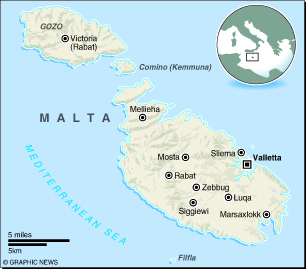 to power after 15 years in opposition.
to power after 15 years in opposition.
Outgoing prime minister Lawrence Gonzi of the the Nationalist Party conceded defeat.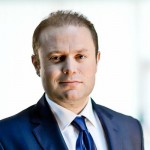
Labour was previously in government between 1996 and 1998.
Following the election it was expected to have a nine-seat majority in Parliament, in contrast to the Nationalist Party’s one-seat majority in the last legislature.
Muscat, aged 39 when he took office, is an ex-journalist and former member of the European Parliament.
He graduated Bachelor of Commerce in Management and Public Policy (University of Malta, 1995), Bachelor of Arts with Honours in Public Policy (University of Malta, 1996), Master of Arts in European Studies (University of Malta, 1997) and Ph.D in Management Research (University of Bristol, 2007) with a thesis on Fordism, multinationals and SMEs in Malta.
Country facts
-Full name: Republic of Malta
-Population: 419,000 (UN, 2012)
-Capital: Valletta
-Area: 316 sq km (122 sq miles)
-Major languages: Maltese, English
-Major religion: Christianity
-Life expectancy: 78 years (men), 82 years (women) (UN)
-Main exports: Machinery and transport equipment
-GNI per capita: US $18,620 (World Bank, 2010)
